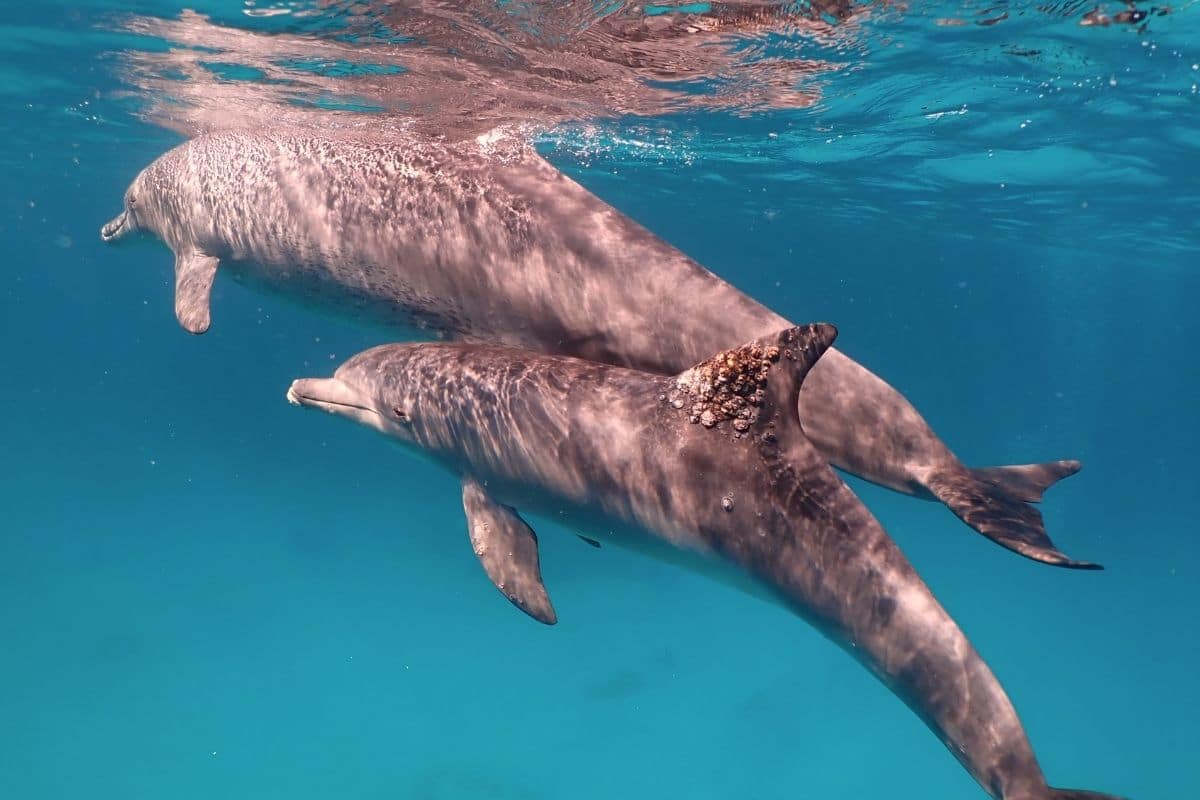
It confirms that these playful and intelligent sea creatures self-medicate.
Thirteen years ago, researcher Angela Ziltener witnessed a curious scene. Off the coast of Egypt, she saw dolphins rubbing against carefully selected corals. “I hadn’t seen this behavior before,” she says. “It was clear that the dolphins knew exactly which corals to get.” In a new study, she set out to find answers. Because what is hidden behind this striking behaviour? “There has to be an explanation for this,” Ziltener said.
Study
Most dolphin research is done from the surface of the water. But because Ziltener is a diver, she was able to study the dolphins up close. It took some time to gain the trust of the group of dolphins – also known as pods. But once she had won that trust, she paid them regular visits. Ziltener and her colleagues found that the Indo-Pacific bottlenose dolphins rubbed against certain types of corals repeatedly, causing the corals to secrete a type of slime. To understand what properties this slime contained, the researchers collected several samples.
corals
The researchers took a closer look at three different types of corals, namely the soft corals Rumphella aggregates and Sarcophyton and the sponge ircinia† Remarkably, using advanced techniques, they discovered 17 active metabolites (‘metabolites’) with antibacterial, antioxidant, hormonal and toxic properties.
Medicinal effect
With the discovery of these bioactive compounds, the team suspects that the mucus secreted by the corals and sponges may have medicinal properties. And that’s what the dolphins have in mind. “By repeatedly rubbing against these corals, the active metabolites come into contact with the dolphins’ skin,” explains researcher Gertrud Morlock. “And that may be an effective treatment against microbial infections.”

A dolphin mother teaches her calf to rub against healing coral. Image: Angela Ziltener
It means dolphins may be playing dermatologist. Because by rubbing against carefully selected coral, they treat their own skin infections. It’s an interesting discovery. Because it confirms that these playful and intelligent sea creatures apparently self-medicate. They have found an effective way to single-handedly cure skin conditions.
Interest
This discovery shows once again how important corals are to marine ecosystems and different local dolphin populations. “A lot of people don’t realize that these coral reefs are both bedrooms and playgrounds for dolphins,” Ziltener says. “Between naps, they then regularly rub against the medicinal corals. It’s almost like they’re taking a shower and washing themselves before going to sleep or getting ready for the day.”
Although the researchers have unraveled a long-standing mystery with their study, they are not yet putting an end to this topic. For example, the team hopes to find out in future studies whether the dolphins choose other corals and sponges for specific body parts and, if so, which ones.
Source material:
†Watch dolphins line up to self-medicate skin aids at coral “clinics”– Cell Press (via EurekAlert)
Image at the top of this article: Angela Ziltener